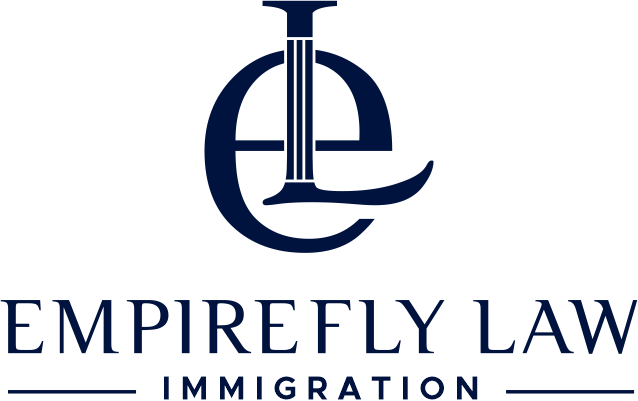Green Cards & Permanent Residency
Our Services
U.S. Green Cards & Permanent Residency for African Immigrants
United States immigration solutions for African immigrants. Let us help you navigate your path to U.S. permanent residency with confidence and ease.
We’re Your Pathway to U.S. Permanent Residency
At Empirefly Law Firm, we are dedicated to helping African immigrants achieve their goal of becoming lawful permanent residents of the United States. Our experienced attorneys provide comprehensive legal guidance and personalized support throughout the Green Card application process. We are committed to making your journey to permanent residency as smooth and successful as possible.
What is a Green Card?
A Green Card, officially known as a Permanent Resident Card, grants an individual the right to live and work permanently in the United States. It is a significant step towards U.S. citizenship and offers various benefits, including the ability to travel freely in and out of the country, work in any job without restriction, and access to certain government benefits.
Eligibility Criteria
There are several pathways to obtaining a Green Card, each with its own eligibility requirements:
Family-Based Green Cards:
- Immediate relatives of U.S. citizens (spouses, children under 21, and parents).
- Family members of U.S. citizens and lawful permanent residents under family preference categories.
Employment-Based Green Cards:
- Individuals with a job offer from a U.S. employer under categories such as EB-1 (priority workers), EB-2 (professionals with advanced degrees), and EB-3 (skilled workers).
Diversity Visa Lottery:
- Individuals from countries with low rates of immigration to the U.S. who are selected through an annual lottery.
Humanitarian Programs:
- Refugees and asylees, as well as individuals under special programs like the Violence Against Women Act (VAWA), Special Immigrant Juveniles (SIJ), and U visas for crime victims.
Other Categories:
- Investors under the EB-5 Immigrant Investor Program and other special immigrant categories.
Green Card Application Process
Determine Eligibility:
- Our attorneys will evaluate your eligibility based on your specific circumstances and advise you on the best pathway to obtain a Green Card.
Petition Filing:
- If applying through a family or employer, file the appropriate petition (Form I-130 for family-based or Form I-140 for employment-based).
- For other categories, submit the necessary forms and documentation as required.
Application for Adjustment of Status or Consular Processing:
- If you are in the U.S., file Form I-485, Application to Register Permanent Residence or Adjust Status.
- If you are outside the U.S., go through consular processing at a U.S. embassy or consulate in your home country.
Biometrics Appointment:
- Attend a biometrics appointment to provide fingerprints, photograph, and signature for background checks.
Interview:
- Attend an interview with a USCIS officer or consular officer, where you will be asked questions about your application and background.
Receive Decision:
- USCIS or the consular officer will review your application and interview results to make a decision.
- If approved, you will receive your Green Card, granting you lawful permanent residency.
Why Choose Empirefly Law Firm?
Expert Legal Guidance:
- Our attorneys have extensive experience in U.S. immigration law and specialize in Green Card applications. We provide personalized advice tailored to your unique situation.
Comprehensive Support:
- We offer support at every step of the Green Card application process, from determining eligibility to preparing for the interview and receiving your Green Card.
Proven Success:
- Our firm has a strong track record of successfully helping African immigrants obtain Green Cards and achieve permanent residency.
Client-Centered Approach:
- We are committed to making the Green Card application process as stress-free as possible, offering compassionate and reliable support throughout your journey to permanent residency.
GET TO KNOW IF YOU ARE ELIGIBLE
Start Your Visa Eligibility Assessment Today
Find out if you qualify for a U.S. visa with our quick and easy online assessment. Begin your journey today!
FAQS
Answers to Your Common Questions
For more personalized guidance and assistance with your family immigration needs, take the Empirefly Eligibility Assessment
You can sponsor your spouse, children, parents, and siblings for a green card. Immediate relatives, such as spouses, unmarried children under 21, and parents of U.S. citizens, have priority and typically face shorter wait times. Extended family members fall under family preference categories and may experience longer processing times due to annual visa caps.
The processing time for a family-based green card varies depending on the relationship between the petitioner and the beneficiary. Immediate relatives can expect processing times ranging from 12 to 18 months. Family preference categories can take several years, depending on visa availability and the applicant's home country.
To sponsor a family member, you must be a U.S. citizen or a lawful permanent resident (green card holder). You must also demonstrate sufficient income to support your family member(s) by submitting an Affidavit of Support (Form I-864). Additionally, the sponsored family member must meet all eligibility requirements, including passing medical and background checks.
Yes, you can sponsor your fiancé(e) for a K-1 visa, which allows them to enter the U.S. to get married within 90 days. After the marriage, they can apply for adjustment of status to become a lawful permanent resident. The K-1 visa process includes submitting a Petition for Alien Fiancé(e) (Form I-129F) and meeting specific eligibility requirements.
If your family member's visa application is denied, it's crucial to understand the reason for the denial, which will be outlined in the decision notice. Depending on the circumstances, you may be able to address the issues and reapply, file an appeal, or submit a motion to reopen or reconsider the case. Consulting with an experienced immigration attorney can help determine the best course of action.
You can check the status of your family member's visa or green card application online through the U.S. Citizenship and Immigration Services (USCIS) website using the receipt number provided when the application was filed. For consular processing, you can check the status on the U.S. Department of State's Consular Electronic Application Center (CEAC) website.
